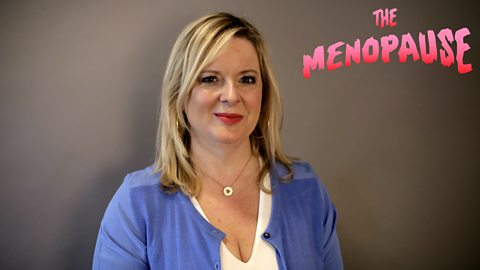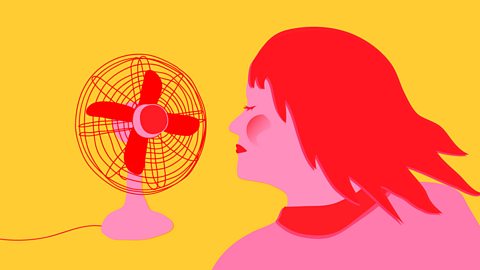Nine tips to help you cope with the menopause
Half the population are going to go through it, so why is the menopause still such a mystery?
As part of a week-long series we asked a host of menopause experts to share their top tips on how to cope with ‘the change’...

Take a trip to your GP
“About 75% of women who go through the menopause will have symptoms and they are very, very variable… just as every woman's experience of pregnancy is different,” says Dr Dawn Harper.
“Some women have the occasional hot flush for a few days, other women have hot flushes and night sweats every few minutes and it goes on for years, with everything thing in between.
“But if you are struggling with an emotional or physical problem, please go and speak to your GP. Even if you're pretty confident you don't want HRT, you can have the conversation about all the other things available to help you - it's not HRT or nothing.”
Prepare for your appointment
“It makes me really sad when I hear people say that they've been brushed off with their menopause symptoms,” says Dawn.
“Speak to the receptionist first, find out who in the practice is most experienced in menopausal matters. As GPs we are all generalists but we also have our areas of interest and it's worth waiting to see a particular doctor that's got that expertise.
“Take some time thinking about your symptoms before you go; how bad they are, what makes them worse… jot it down if needs be. You’ve only got 10 minutes, maybe 12, so you need to jump straight in.”
Think about HRT
HRT can help with hot flushes, night sweats, mood swings, sleeplessness, a lack of confidence and anxiety, but there are risks says Dr Daisy May, who’s worked in the field for 25 years.
“Undoubtedly there is a small increased risk in breast cancer, but when we look at the figures the numbers would suggest that if you had 1000 women taking HRT between the ages of 50-59 for five years, you'd have an extra three cases of breast cancer.”
“We need to put it in perspective,” adds Dawn. “It’s a very small risk and it's actually similar to the sort of risk of breast cancer associated with drinking two or three units of alcohol a day.”
There are long term health benefits as well, for example the effect on bones.
“It helps to maintain calcium in the skeleton and reduces the risk of osteoporotic fractures by 50%,” says Daisy.
“Menopausal symptoms usually last three to five years and we would advise that, instead of stopping HRT suddenly, you phase it out slowly and that seems to have some effect of reducing the symptoms coming back.”

The menopause: I was taken aback by how crazy I felt
Author Allison Pearson on why her experiences of 'the change' inspired her latest novel.
Change your lifestyle... and your wardrobe
Cutting back on alcohol and caffeine can help, as well as avoiding spicy foods if you’re having hot flushes.
“Just think about your wardrobe too,” says Dawn, “natural fibres rather than man-made fibres are better if you're struggling with hot flushes - and it’s all about the layers.”
Jo McEwan from Hot Flush says it helps to exercise, which can ward off things like heart disease, osteoporosis, strokes and diabetes.
“I made myself do a bit of boxing, and running… if I can do it anyone can, because I don’t like exercise!”
Think about CBT
“We look at the relationships between physical symptoms and thoughts, feelings and behaviours,” says Professor Myra Hunter, who specialises in using Cognitive Behavioural Therapy (CBT).
“Someone may be at work having a hot flush and straight away she thinks ‘everyone's looking at me, I can't cope!’. And these thoughts increase levels of embarrassment and frustration which makes the hot flushes worse.
“Women actively try to hide their symptoms to avoid ridicule, so we would encourage women to have calmer thoughts and use practical techniques such as a calm breathing exercise.”
Look at other alternative therapies
“There is evidence that acupuncture can reduce the frequency and severity of hot flushes, and I think to some extent it's about dealing with stress, looking after yourself, having time out,” says Daisy.
Many Woman’s Hour listeners claim alternative therapies like Evening Primrose Oil, Black Cohosh and Red Clover have helped alleviate symptoms - but how safe are they?
“There is not a huge amount of well substantiated research with any of these products,” says Daisy, “and you can get a 50% placebo response, so it’s difficult to know.
“I don't think there's been any suggestion that they're harmful… but certainly with red clover there are some studies that have shown it's beneficial for symptom control and may have positive effects on cardiovascular disease and bones.”
The red clover contains plant oestrogens that you can also get from soya products like chickpeas and beans.
“There is still some caution about using it longterm and it's not recommended for patients at a high risk of breast cancer or who've had treatment for breast cancer,” warns Daisy. And don’t forget to look out for a THR logo on the back of any herbal products you’re buying off the internet to make sure it’s been tested.
Dawn adds: “If you don't want to try anti-depressants then a herbal remedy like St John's Wort can help for mild to moderate depression or anxiety related symptoms.”
A problem shared is a problem halved
Meg Matthews was so unprepared for her menopausal symptoms, which she says hit her “like a tsunami”, she resolved to spread the word by launching her website Meg’s Menopause.
“Just actually talking and sharing has been the most important thing - other than getting my hormones back level again - I feel like I'm back to being a human being again and not being a neurotic wreck keeping in doors.
And Dawn advises talking to your mum about it, if you can.
“If your mum went through an early menopause it is likely that you may go through one too. I tell women to make sure they talk to their daughters because more women are working full time and perhaps delaying starting a family - if you know that you might go through an early menopause, that might influence your thinking.”
Celebrities who’ve shared their stories can also help start the conversation.
“You’d be amazed how often people will come into my consulting room, either with a cut out from the newspaper or magazine or their opening line is ‘so and so is talking about…’. It really is an incredibly powerful tool, it gives women a green light. Lorraine Kelly was talking about her experience and that had such a positive effect on women coming in to talk about things.”
Talk to your partner too
“It’s not just menopausal women that I see in my surgery – it’s not uncommon for me to see husbands or partners saying ‘I just don't know how to deal with this - she's not the woman that I fell in love with.’ And of course she is, she's just struggling and so talking it through is a really good thing,” advises Dawn.
“If you're waking up several times a night with nightsweats and you're not sleeping, you're starting each day on half a tank of fuel, exhausted and short-fused. It's important that you vocalise that and that everybody tries to work together and support each other.”
Try and raise awareness in the workplace

“Having awareness within the workplace is a win-win situation…”
How can we help women during menopause in the workplace?
Menopause Support
British Menopause Society
Menopause Matters
Women's Health Concern
NHS Choices - Menopause
For more from our series check out our menopause collection here or read other helpful articles from Woman's Hour.
